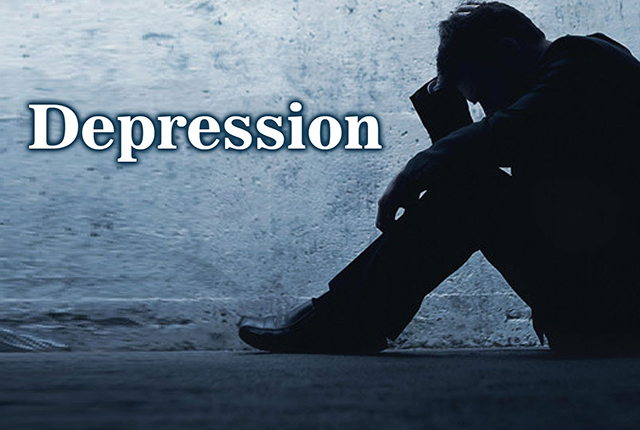Tell-tale signs of depression

Dr Sacrifice Chirisa Mental Health Matters—
Most if not all people have felt sad or depressed at times in their lives. Feeling depressed can be a normal reaction to loss, life’s struggles or an injured self-esteem.
However, when feelings of sadness become intense, persistent together with feelings of helplessness, hopelessness, and worthlessness lasting many days to weeks and keeping one from functioning normally it may very well be clinical depression, a treatable medical condition.
How does one know they have depression? According to the Diagnostic Statistical Manual 5, a manual used to diagnose mental disorders, depression occurs when you have at least five of the following symptoms for at least two weeks:
l A depressed mood during most of the day, particularly in the morning
l Fatigue or loss of energy almost every day
l Feelings of worthlessness or guilt almost every day
l Insomnia (an inability to sleep) or hypersomnia (excessive sleeping) almost every day
l Markedly diminished interest or pleasure in almost all activities nearly every day
l A sense of restlessness or being slowed down
l Significant weight loss or weight gain
l Difficulty concentrating, remembering details, and making decisions
l Feelings of guilt, worthlessness, and or helplessness
l Recurring thoughts of death or suicide
The key sign of depression is either depressed mood or loss of interest in activities you once enjoyed. For a diagnosis of depression, these signs should be present most of the day either daily or nearly daily for at least two weeks. In addition, the depressive symptoms need to cause clinically significant distress or impairment.
One does not need to have all of these symptoms. Depression is categorised into mild, moderate and severe depending on the number of symptoms that are present. People with major depression might also have other physical symptoms, such as pain or other illnesses that get worse, stomachaches, headaches, backaches, muscle aches, joint pain, slowed speech and movements or gastrointestinal problems.
Thoughts like the following also occur with depressed person; ‘I’m a failure, ‘It’s my fault, ‘Nothing good ever happens to me, “I’m worthless”, “Life’s not worth living” and “People would be better off without me”.
Depression often varies according to age and gender, with symptoms differing between men and women, or young people and older adults.
Childhood depression is different from the normal “blues” and everyday emotions that occur as a child develops. If the child is sad, this does not necessarily mean he or she has significant depression. It’s when the sadness becomes persistent that is day after day that depression becomes an issue. Or, if the child presents with disruptive behavior that interferes with normal social activities, interests, schoolwork, or family life, it may indicate that he or she has a depressive illness. Because as many as one in every 33 children get depressed.
Teenagers occasionally feel unhappy. However, when the unhappiness lasts for more than two weeks and the teen experiences other symptoms of depression, then he or she may be suffering from adolescent depression. Depression in teens presents as irritability, anger, and agitation not sadness. They may also complain of headaches, stomachaches, or other physical pains. One in eight adolescents suffer with depression.
Depressed men are less likely to acknowledge feelings of sadness and hopelessness. Instead, they tend to complain about fatigue, irritability, anger, sleep problems, and loss of interest in work and hobbies. They’re also more likely to experience symptoms such as anger, aggression, reckless behaviour, and substance abuse.
Women are more likely to experience symptoms such as pronounced feelings of sadness, depressed mood, guilt, excessive sleeping, overeating, and weight gain. Depression in women is also impacted by hormonal factors during menstruation, pregnancy, and menopause. Up to 1 in 7 women experience depression following childbirth, a condition known as postpartum depression.
Older adults above the age of 60 years tend to complain more about the physical rather than the emotional signs and symptoms of depression: things like fatigue, unexplained aches and pains, and memory problems. They may also neglect their personal appearance and stop taking critical medications for their health.
Depression is one of the commonest mental illnesses. It is estimated that by the year 2020, major depression will be second only to ischemic heart disease in terms of the leading causes of disability in the world. Unfortunately, most people with clinical depression never seek treatment. Left undiagnosed and untreated, depression can worsen, potentially lasting for years and causing untold suffering, and possibly suicide.
Depression is a major risk factor for suicide. The deep despair and hopelessness that goes along with depression can make suicide feel like the only way to escape the pain. If you have a loved one with depression, take any suicidal talk or behavior seriously and watch for the warning signs:
1. Talking about killing or harming one’s self
2. Expressing strong feelings of hopelessness or being trapped
3. An unusual preoccupation with death or dying
4. Acting recklessly, as if they have a death wish
5. Calling or visiting people to say goodbye
6. Getting affairs in order (giving away prized possessions, tying up loose ends)
7. Saying things like “Everyone would be better off without me” or “I want out”
8. A sudden switch from being extremely depressed to acting calm and happy
If you think a friend or family member is considering suicide, express your concern and seek help immediately.
There are several types of depression. Will only mention two of them at the moment.
1) Secondary depression is depression that develops after the development of a medical condition such as hypothyroidism, stroke, Parkinson’s disease, or HIV and AIDS, or after a psychiatric problem such as schizophrenia, panic disorder, or bulimia.
2) Masked depression is depression that is hidden behind physical complaints for which no other medical cause can be found.
While some illnesses have a specific medical cause, making treatment straightforward, depression is more complicated.
Depression is not just the result of a chemical imbalance in the brain that can be simply cured with medication. It’s caused by a combination of biological, psychological, and social factors. In other words, your lifestyle choices, relationships, and coping skills matter just as much. Risk factors that make you more vulnerable to depression include:
l Loneliness and isolation
l Lack of social support
l Recent stressful life experiences
l Health problems or chronic pain
l Family history of depression
l Marital or relationship problems
l Financial strain
l Early childhood trauma or abuse
l Alcohol or drug abuse
l Unemployment or underemployment
If you or someone you know is experiencing symptoms of depression, seek care from a qualified mental health care provider or doctor. He or she should then evaluate the symptoms present and provide treatment or refer you or your loved one to a mental health professional for further management.
I hope this information will improve the recognition of depression in our communities.









Comments